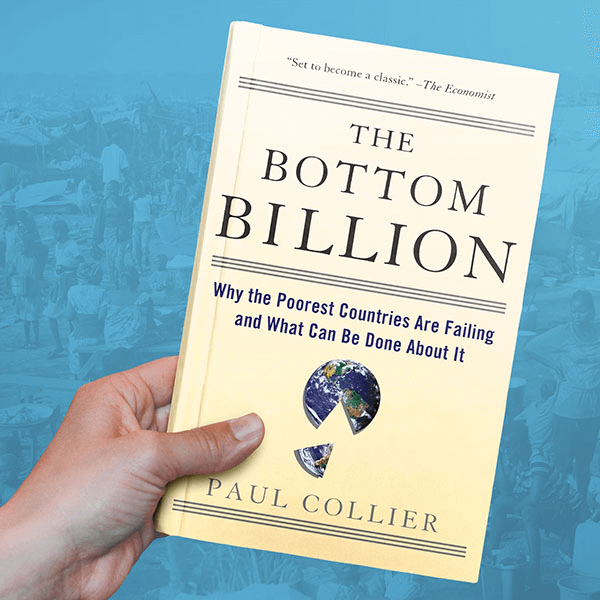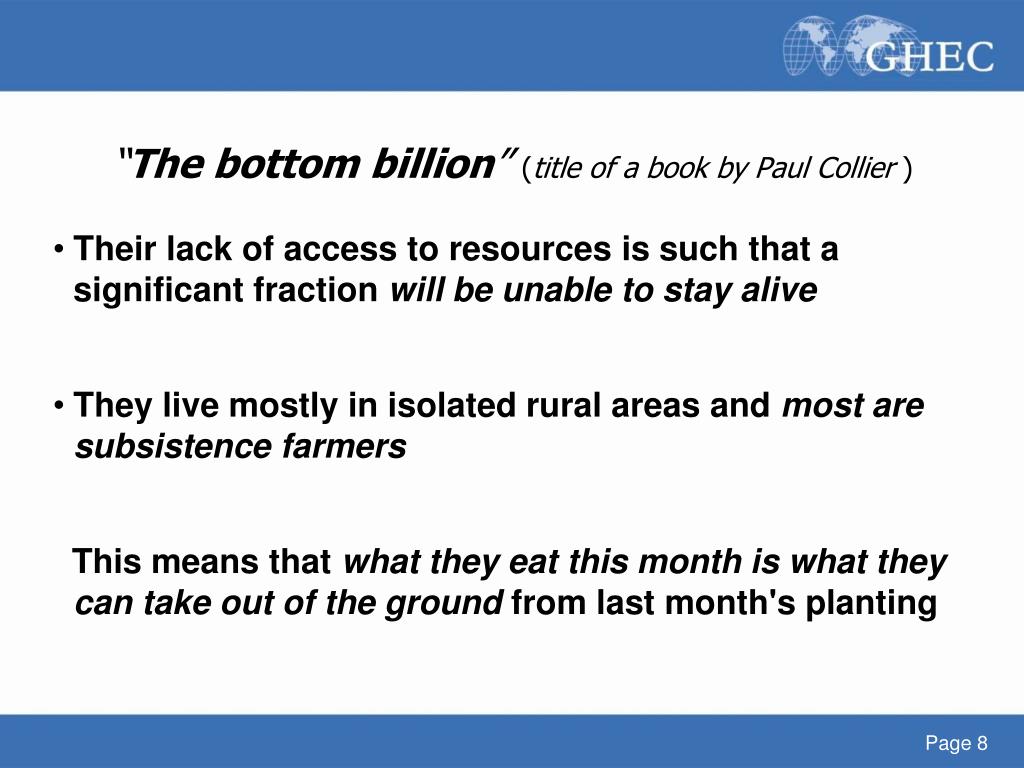
Sierra Leone, on the other hand, provides for Collier an example of correct military intervention. Rwanda being a prime example of where mass genocide was clearly avoidable but was snubbed because the international community “didn’t want a second Somalia”.

Collier does not condone the Iraqi invasion, and in turn draws the dichotomy of the situation in Iraq to that of Rwanda and Sierra Leone. Even admitting that “after Iraq it’s difficult to arouse much support for military intervention”. For his argument to hold any validity it must. How does Collier argue for military intervention to be used as an ‘instrument’ to lift the bottom billion out of abject poverty, especially with the context of Iraq? For one, rather than dance around the subject, Collier’s reciprocation of common sentiment does reference the Iraq invasion. Although Collier notes that this has the tendency to push out the countries that require aid the most from the bracket, if it is coupled with “capacity building”, where native civil servants are trained by foreign experts to an “international standard”, aid can help lift the bottom billion out of economic stagnancy and into the “developing nations” bracket. the practice of attributing aid to countries that are displaying reformation, rather than those who promise to do it. To rectify the problem that aid can have in the presence of bad governance, Collier advocates for ‘ex poste conditionality’, i.e. Collier does outline a different practice for aid. Collier states that the “governments discovered they only needed to promise to reform, not actually do it”. The practice of giving aid to governments that promise political and social reforms. Moreover, Collier attacks the policy of conditionality.

Using the example of Chad, he notes that 99 percent of money, intended for rural health clinics, did not reach it’s destination, finding a home in the pockets of government officials before it could get there. He equates that coupled with the trap of bad governance, money injections into public services are often intercepted by officials. Nevertheless, Collier’s overarching message is critical of aid, or at least it’s practice. Whereas the right “seems to want to equate aid with welfare scrounging”, taking a laissez faire approach not compatible with the mission of disentangling these countries from economic entrapment.

The left sees aid as reparations for colonialism, therefore, “the only role for the bottom billion is as victims”.

On the subject of aid, Collier shows clear contempt for both the left and right wing ideologies regarding aid.


 0 kommentar(er)
0 kommentar(er)
